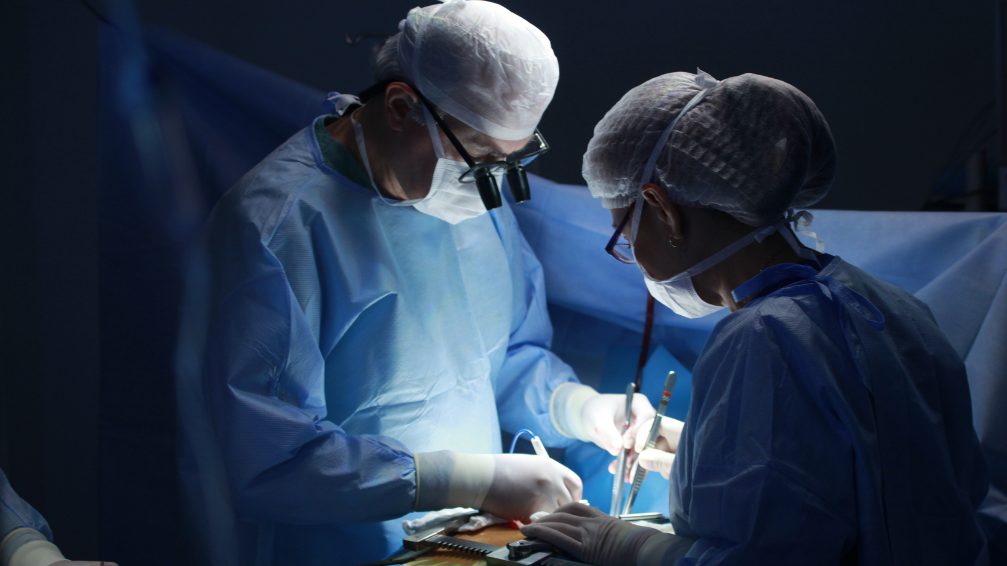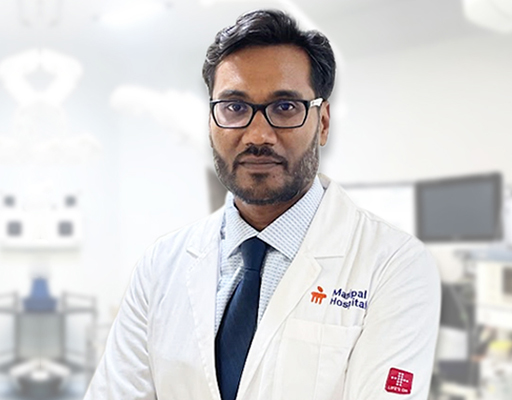
Things You Should Know About Surgery For Stomach Cancer
We believe minimally invasive care is life-enhancing care

Understanding what stomach cancer is and the surgical options available to treat it is like navigating a maze. When it comes to stomach cancer, information becomes a ray of hope. Our commitment extends beyond our medical expertise to include compassion and real understanding. Stomach cancer is more than just a medical issue; for each patient, it is a personal experience. We understand this and the fact that every patient is unique and is more than just their physical ailment.
Is Surgery Necessary If You Have Stomach Cancer?
Getting a thorough diagnosis of stomach cancer is a very personal and unsettling moment. The main focus of this journey is the crucial question of whether stomach cancer surgery is required as part of the overall treatment plan. We understand the importance of this choice and the necessity of fully comprehending the particular circumstances surrounding each patient.
The core of our strategy is customization. We know that every situation is unique and that the greatest results require a customized approach. Before making decisions, our skilled medical staff carefully evaluates each patient, considering a number of aspects.
Stomach surgery is often recommended only after a complete evaluation and to provide the most individualized and efficient course of therapy. In order to get rid of the tumor, get rid of bothersome symptoms, or make other treatments work better, surgery can be required. This comprehensive approach guarantees that the suggested plan of action smoothly corresponds with the unique requirements and situations of every patient.
The outcome of a thorough assessment that puts the patient first determines if stomach surgery is necessary. This is not a standalone choice. Our goal is to accompany every patient on their individual journey by offering not only medical knowledge but also a sensitive and understanding attitude to this demanding setting.
What Is Meant By Stomach Cancer?
Gastritis is a complex disease that starts in the stomach lining and is also referred to as stomach cancer. This stealthy disease often progresses slowly over several years, exhibiting different stages that require close monitoring and proactive healthcare interventions for early identification.
We are committed to educating patients about stomach cancer. Understanding the complexity of this illness is essential to advancing effective intervention strategies and early detection. The need for periodic screenings and check-ups is highlighted by the slow progression and subtle beginnings of this type of cancer.
Key Insights
- Start In The Stomach Lining: Normal stomach lining cells have the ability to transform into malignant growths. This is the initial appearance of stomach cancer.
- Gradual Development: Unlike certain other cancers, stomach cancer often occurs gradually over several years. This characteristic highlights the value of continuous monitoring and early detection programs.
- Difficulties With Early Detection: Early detection of stomach cancer may come with challenges. Given that symptoms can be mild or confused with those of less serious conditions, it is critical to be aware of potential indicators.
In the fight against stomach cancer, the need for routine medical exams and screenings cannot be emphasized. Medical professionals can detect abnormalities or warning signs early on and take necessary action by using these preventative measures.
Indications And Remarks
We emphasize how critical it is to identify any possible signs of stomach cancer. Warning indications include discomfort after meals, unexplained weight loss, and persistent dyspepsia. People should seek medical attention as soon as possible. By being aware of these symptoms, people can take charge of their own health and contribute to the early discovery and treatment such as stomach surgery.
What Is Involved In Stomach Cancer Surgery?
Knowing the nuances of the surgical process becomes essential when stomach cancer calls for it when the patient’s road to recovery begins. We approach stomach surgery with a focus on precision and the well-being of our patients.
-
Gastrectomy: The Foundation of Stomach Cancer Surgery
A gastrectomy, or removal of all or part of the stomach, is a common surgical procedure for stomach cancer. The specifics of the cancer, such as its stage, location inside the stomach, and characteristics, usually determine this decision. Our skilled surgical team carefully carries out these procedures, customizing each one to the unique needs of the patient.
-
Technological Advancement: Robotic Surgery
We specialize in robotic surgery in Bangalore, utilizing state-of-the-art techniques and embracing technological advancements in medicine. This novel approach lowers invasiveness and increases accuracy, which is a significant improvement in the surgical management of gastric cancer.
Key Highlights of Robotic Surgery:
- Enhanced Precision: Robotic surgery in Bangalore provides a higher level of precision as opposed to traditional surgical approaches. With the robotic arms, the surgeon can conduct precise movements that ensure the preservation of surrounding good tissue while precisely removing malignant tissue.
- Minimal Invasiveness: Since robotic surgery is minimally invasive, the patient has less overall harm to their body because fewer incisions are made. This promotes faster healing and lessens discomfort during the healing process.
- Quick Recovery: One of the primary advantages of robotic surgery is its ability to expedite the healing process. Patients typically have shorter hospital stays and resume normal activities quickly, which improves their overall postoperative experience.
Patient-First Method
We are committed to our patients’ well-being in ways that go beyond our formal education. We prioritize the comfort and quick recovery of our patients over the effectiveness of the procedure when doing robotic surgery in Bangalore. As evidence of our unwavering dedication to providing state-of-the-art, patient-centered care in the field of gastric cancer surgery, we employ cutting-edge technology in our surgical procedures.
How Long Does It Usually Take To Recuperate From A Gastric Bypass?
It is important for patients transitioning to life after stomach surgery to understand the complex recovery process following a gastrectomy. We are aware that this phase involves more than just physical recovery—it also involves emotional and psychological aspects. Our commitment to comprehensive care extends to the post-operative phase, where we help patients with all aspects of their rehabilitation.
-
The Progressive Recuperation Route
Following a gastric bypass, the healing process is a gradual one that involves both mental and physical adaptations. Adjusting to a smaller stomach requires careful consideration of food adjustments. Through this shift, patients are supported and enabled to adopt new eating practices that suit their needs and overall health post-surgery.
-
Nutritional Modifications
Making dietary adjustments is a big part of life after a gastric bypass. A change in eating patterns is necessary, with an emphasis on smaller, more frequent meals due to the smaller stomach capacity. In order to ensure that patients get the nutrients they need while negotiating the complexities of their altered digestive tract, nutritional assistance becomes an essential component.
-
The Holistic Approach to Care
We continue to provide comprehensive care even after surgery. We go beyond medical interventions because we understand that recovery comprises psychological, emotional, and physical components. Our all-inclusive treatment strategy consists of:
- Nutritional counseling: To help patients make informed dietary decisions, our healthcare professionals offer specific nutritional advice. This guarantees that they fulfill their dietary requirements and also manage the special dietary restrictions following a gastric bypass.
- Psychological Support: Our team recognizes that patients may encounter difficulties, as emotions play a crucial role in the healing process. Our strategy incorporates psychological support, which offers a secure forum for people to share their emotions, worries, and victories.
- Frequent Follow-ups: Following surgery, these follow-ups constitute an essential part of our treatment plan. During these check-ins, patients can have their physical recovery monitored, any new concerns can be addressed, and they can receive continuous support as they navigate the different stages of their post-gastrectomy journey.
Beyond Medication
We are aware that recovery is a holistic process that includes mental and psychological well-being in addition to physical restoration. Our mission is to support our patients by providing them with compassionate care that recognizes the complexity of the post-surgery experience in addition to our medical skills.
Following a gastric bypass, patients must recuperate on their own, and we are committed to offering a comprehensive range of treatment that supports mental and spiritual well-being in addition to physical well-being. We work to make the healing process a monument to fortitude, resiliency, and a revitalized feeling of health and vitality via individualized care and a dedication to overall well-being.
Conclusion: Nurturing Hope and Health
All in all, if you have the correct support and advice, navigating stomach cancer and its surgical remedies is a difficult but manageable road. We provide not just medical knowledge but also empathy and understanding, making us a light of hope.
Choosing to have weight loss surgery, obesity surgery, or cancer surgery is a serious decision. In order to guarantee the best results, we are committed to giving individualized treatment while implementing cutting-edge methods like robotic surgery in Bangalore. We understand the human side of the journey, recognizing the emotional and psychological aspects that come with receiving a cancer diagnosis, in addition to the technical aspects of medicine.
Together, let’s go off on this road to promote not only healing but also a revitalized feeling of optimism and well-being.
Frequently Asked Questions
Risk factors for stomach cancer, such as genetics, cannot be changed, lifestyle modifications such as maintaining a healthy weight, avoiding tobacco and excessive alcohol consumption, and consuming a balanced diet rich in fruits and vegetables may help youreduce the risk of developing stomach cancer.
It completely depends on the stage and few characteristics of the cancer, some alternative treatments eg. chemotherapy, radiation therapy, targeted therapy, and immunotherapy may be considered either alone or in combination with surgery.
After stomach cancer surgery, patients may need to make adjustments to their diet and eating habits. This may include eating smaller, more frequent meals, avoiding certain foods that may be difficult to digest, and working closely with a dietitian to ensure proper nutrition.



